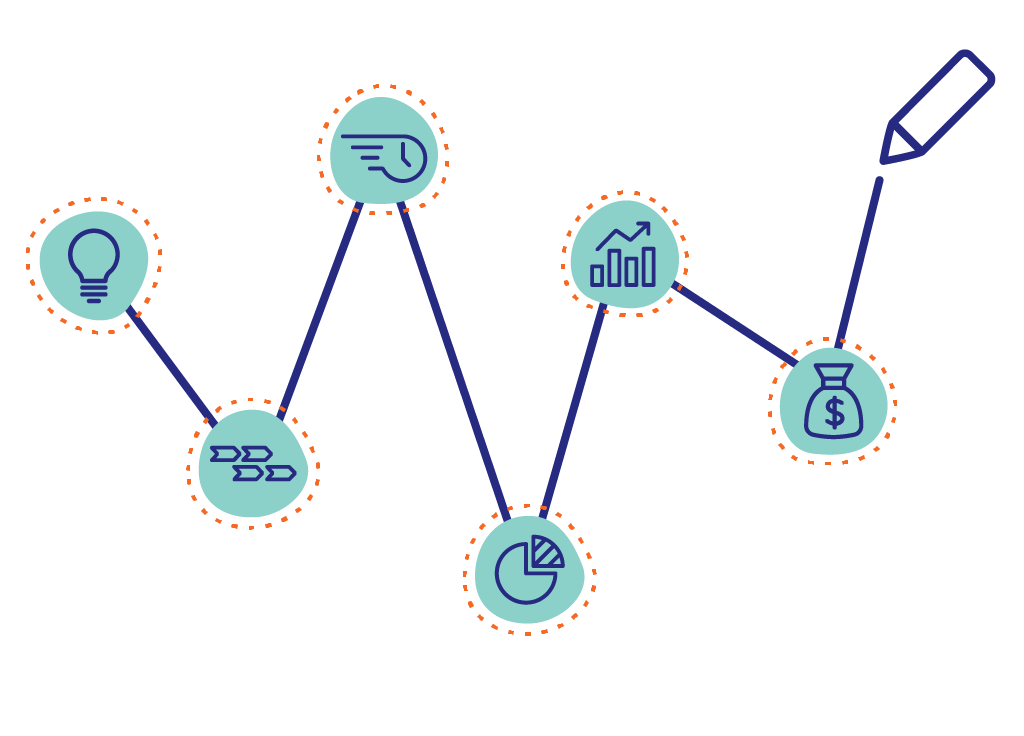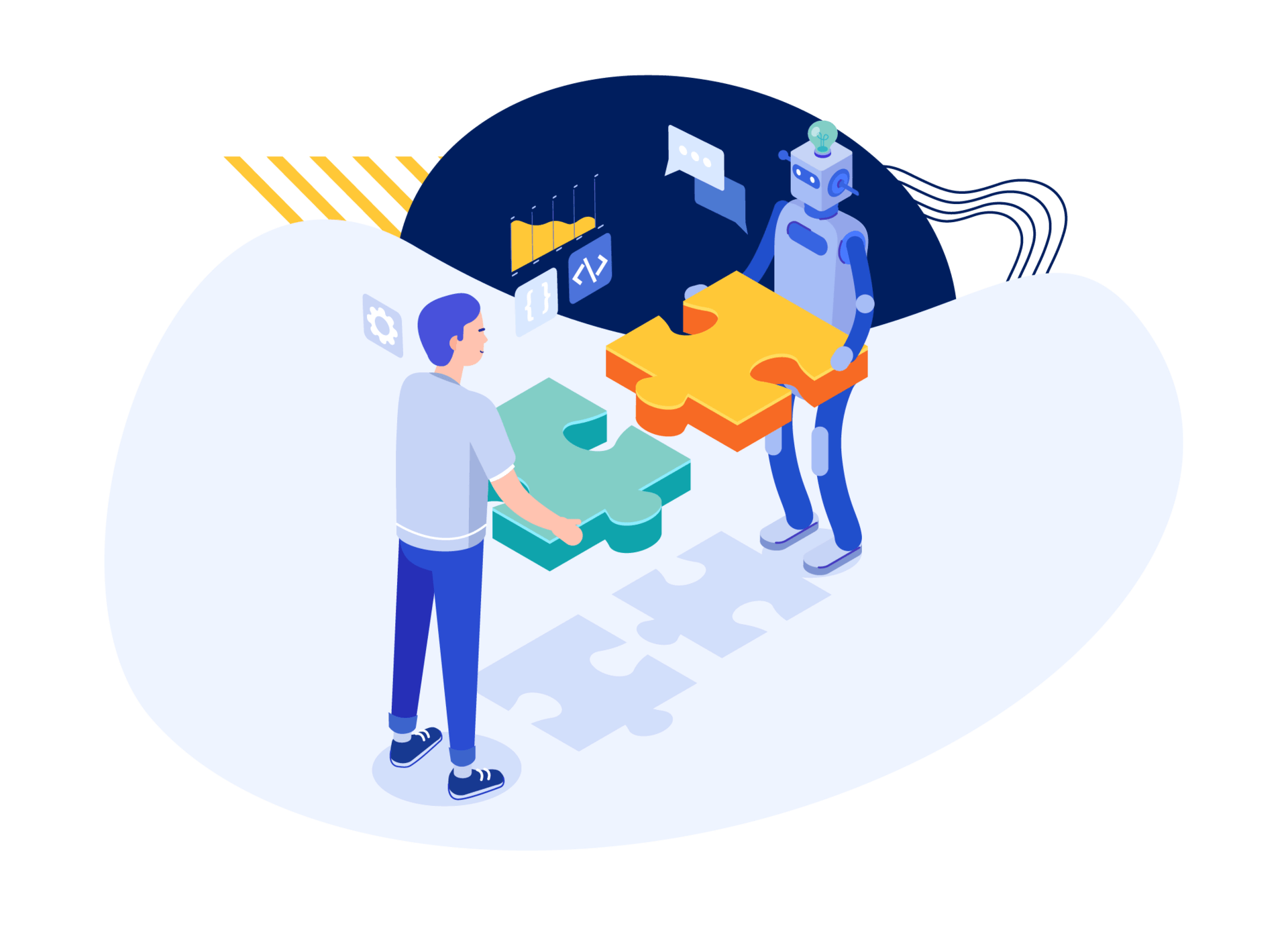
Enterprise AI
What is enterprise AI?
Artificial intelligence, or AI, is a branch of computer science that deals with machines being able to learn, reason, and make decisions. AI has been around for decades, going through various hype cycles as far back as the 1970s. Enterprise AI refers to the concept of using AI in an enterprise setting and covers many different technologies, including rules engines, machine learning, and more.
Enterprise AI helps businesses transform operations by streamlining workflows and decision-making. From automating routine tasks and providing personalized customer experiences, to collecting valuable data insights, AI dramatically increases the capabilities of enterprise software.


How can enterprise organizations benefit from artificial intelligence?
Leading enterprises use artificial intelligence and automation to help manage and optimize high-volume, low-complexity tasks and processes. By streamlining work and providing real-time recommendations, employees have the capacity to shift focus to more important tasks.
Advantages of enterprise AI
- Continuous workflow optimization: Uncover and quickly address inefficiencies to make processes work better for everyone.
- Better customer service: Learn customer context and create personalized recommendations to offer better resolutions.
- Increased engagement: Automate customer service so you can leave more bandwidth to create personalized recommendations and offers.
- Improved decision-making: Collect better organizational data to inform valuable, actionable data insights.

Redefining the “A” in AI
Learn how AI is transforming businesses into autonomous enterprises. In this video, you’ll see real-life examples of how AI-powered decisioning drives better outcomes, maximizes efficiency, provides exceptional service, and increases customer value.
Watch the full session
From boosting productivity to personalizing experiences and more – see what AI can do for you.

Implementing AI in the enterprise
According to a recent survey conducted by Savanta, over 60% of respondents say they have failed at AI implementation, but integrating AI across enterprise functions doesn’t have to be as intimidating as it sounds. Typically, optimizing processes with AI can be broken down into three simple steps:
- Identify the problem. Recognize the key areas where your processes are inefficient and examine how AI can potentially address those deficiencies.
- Collect data. Analyze the data your organization has available to document processes and create a valuable machine learning model.
- Train the AI model. The output of an AI model will only be as strong as the input, so the more relevant documentation your organization can provide for each business process, the more valuable AI automation will prove.

The main challenges of enterprise AI
Sure, enterprise AI is meant to make business operations run more smoothly and effortlessly – but there are a few issues to consider to ensure the technology’s overall success. Here are a few common challenges in implementing enterprise AI.
AI implementation considerations
- Bias in AI: Because AI is trained to recognize patterns, bias can insinuate itself in its algorithms. Retraining the AI to be more equitable and fair by reframing outcomes around key markers can make up for this tendency.
- Data privacy and security: Every business should take security seriously, across all facets of its operations. AI is no different. Putting guardrails in place protects both company and customer data from bad actors.
- Shortage of AI professionals: Dedicated AI professionals focus on keeping the technology on track to achieve specific business goals, with compliance and security in mind. The workforce is just beginning to grasp their role in optimizing this technology.

Enterprise AI use cases
Manufacturing
Because AI can continuously learn and recognize patterns, financial institutions can use it to recognize suspicious activity and prevent fraudulent transactions before they occur. By automating fraud prevention, employees can focus more on providing the best customer service.
Energy
Energy companies can use AI to optimize power grids and further integrate renewable resources. With the help of AI, large energy suppliers can ensure a reliable and stable supply and reduce the need for conventional power sources.
Financial services
Because AI can continuously learn and recognize patterns, financial institutions can use it to recognize suspicious activity and prevent fraudulent transactions before they occur. By automating fraud prevention, employees can focus more on providing the best customer service.


What's next in enterprise AI?
As AI continues to become commonplace, companies that are able to integrate it efficiently will enjoy a competitive advantage. No one knows exactly what the future holds for AI in the enterprise, but it’s safe to assume the following:
- Development and adoption of generative AI will accelerate. Generative AI isn’t just a buzzword. Savanta’s AI survey reports 92% of respondents believe they'll be leveraging AI more in the next five years. 74% of respondents even expressed confidence that AI can significantly transform their businesses within the next decade. As generative AI continues to evolve, its capabilities will extend beyond basic tasks to encompass even more complex outputs, such as the development of entirely new products or services.
- Collaboration between humans and AI. AI doesn’t mean machines will be replacing humans. In fact, successful businesses will focus on how AI and humans can work together. For example, AI can streamline data analysis while human customer service representatives focus on building meaningful relationships with customers, creating a more productive working environment.
- Ethical considerations. As the use of AI becomes more prevalent in the enterprise, there will be a larger focus on responsible AI. Organizations will have to prioritize building trust by ensuring fair and transparent decision-making processes.
For further reading on enterprise AI
Do more with less
Transparent, empathetic tech
Support your business goals

